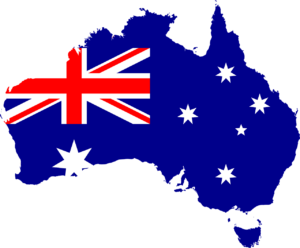
How to migrate to Australia?
Australia is a popular choice for immigration due to its high quality of life, thriving economy, and diverse population that is already home to hundreds of thousands of expats from around the world. It offers a variety of immigration options for migrants to relocate to Australia, which includes General Skilled Migration, Employer Sponsored Migration, Business Investment Migration, Family Member Sponsor Migration, Distinguished Talent Migration as well as Humanitarian Migration.
1. General Skilled Migration
The General Skilled Migration Visas is for skilled individuals or families looking to permanently migrate to Australia, to fill Australia’s skill shortages. Visas within the General Skilled Migration program are points tested and are either independent, State / Territory nominated or family-sponsored visas. The point system is mainly based on the applicant’s personal circumstances, such as age, English ability, qualifications, work experience and other factors. The minimum number of points for skills migration is 65 points.
2. Employer Sponsored Migration
The employer-sponsored migration visas allow Australian employers to sponsor specific overseas skilled labour to fulfil their business needs. There is no point test requirement for an employer-sponsored visa. Visa applicants must be qualified and have sufficient experience working in an occupation listed on the relevant Skilled Occupation List, and they are sponsored by employers that meet the criteria for sponsorship and nomination. There are three main categories of employer-sponsored visas: Temporary Skill Shortage Visa, Employer Nomination Scheme Visa and Skilled Employer Sponsored Regional (Provisional) Visa.
3. Business Investment Migration
The Business Investment Migration Visas allow foreign investors to own and manage a business in Australia, conduct business and investment activity in Australia or undertake an entrepreneurial activity in Australia. Most business visas are point tested, which will take into account not only the net assets of the applicant and the business, business background, business turnover and other business factors but also the applicant’s age, education, English proficiency and other factors. The investors must be nominated by an Australian State or Territory government agency or Austrade.
4. Family Member Sponsor Migration
The Australian government has always attached great importance to family reunification. This entitles partners, children, parents and other family members to migrate to Australia if eligible. These visas are essentially sponsored by Australian citizens, Australian Permanent Residents as well as eligible New Zealand citizens. Family visas are allowed to be applied from either onshore or offshore. The common family member sponsored visa mainly includes a Partner Visa, Child Visa and Parent Visa.
5. Distinguished Talent Migration
Distinguished Talent Migration visas specifically for people who have an internationally recognised record of exceptional and outstanding achievement in one of the following areas (and still be prominent in the area): a profession, a sport, the arts and academia and research. Also, the applicants must be nominated by an Australian citizen, Australian permanent resident, eligible New Zealand citizen, or Australian organisation with a national reputation in relation to the applicant’s area of talent. These visas can either be applied from onshore or offshore.
6. Refugee and Humanitarian Migration
Australia’s Refugee and Humanitarian Program is part of international efforts to protect refugees, respond to global humanitarian need and provide specialist support. If applicants are already in Australia, they may be able to apply for a protection visa if they fear persecution or are at risk of significant harm in their home country. If they live outside Australia and need humanitarian protection, they may have several visa options to resettle in Australia.







